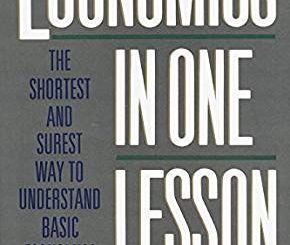Hitler’s War
Told from original source materials including the diaries and meeting notes from first person accounts. A fascinating glimpse of “real” history, that doesn’t always fit the story we’ve been told.
For example, Hitler’s idea of a ‘final solution’ to the Jewish problem appears to be relocating them all to Madagascar after the war, and time and time again he shows ignorance or aversion to any sort of genocidal actions, which seem to be more on account of Goebbels and Himmler.
Also, Hitler very much wanted to be friends with Britain, not simply for strategic reasons, but because he liked and respected the British Empire, and thought that Britain would lost it all by fighting a war with Germany. And… that’s pretty much what happened.
Here are a number of excerpts from the book that I found of interest:
Here in the late 1920s he had purchased a cottage with the royalties earned by Mein Kampf and articles published under a pseudonym by the Hearst Press and the New York Times in America.
After speaking from the balcony of Vienna’s city hall on April 9, he took the overnight train to Berlin. As they passed through Leipzig he remarked to Goebbels that he was working on a plan to ship all of Europe’s Jews off to the Indian Ocean island of Madagascar.
On July 14, 1938 the Danzig gauleiter, Albert Forster, met Mr. Winston Churchill, and told him that ‘if Britain and Germany could only come to terms they could share the world between them.’
Four days later, on July 18, Wiedemann flew back from London to Berchtesgaden. Lord Halifax, he said, had revealed to him that his one ambition in life before he died was to see the Führer ‘at the side of the king of England, driving to Buckingham Palace to the cheers of the crowds.’
The daily FA wiretaps showed the Czech envoy mouthing obscene insults about the western statesmen, appealing to Prague for still more cash – urgently – and plotting with Churchill and his Paris colleague the early overthrow of the Chamberlain and Daladier regimes.
At 3:30 p.m. Chamberlain told his Inner Cabinet he thought he had ‘established some degree of personal influence over Herr Hitler’; he felt Hitler would not go back on his word. At five p.m. he told the full Cabinet that Hitler was ‘extremely anxious to secure the friendship of Great Britain
hitler had returned that morning, October 14, 1938, … had announced that he did not intend to drop his guard since, in democracies, statesmen who worked sincerely for peace could always be replaced overnight by warmongers: ‘It only needs Mr. Duff Cooper or Mr. Eden or Mr. Churchill to come to power in place of Chamberlain, and you can be quite sure that their aim would be to start a new world war. They make no bones about it, they admit it quite openly.’
according to Otto Meissner’s wife, Magda had once told her that her son Hellmut was in fact sired by Hitler during a 1934 Baltic vacation.
Nobody, however, wanted to house these homeless Jews. When Ribbentrop journeyed to Paris with much pomp in December to sign the joint declaration that Hitler had first suggested to François-Poncet, foreign minister Georges Bonnet begged him not to flood France with German Jews, as they already had enough Jews of their own. (‘In fact,’ Ribbentrop informed Hitler, ‘they are considering Madagascar for this purpose.’)
Poland’s attitude was no more sympathetic. Ambassador Joseph Lipski had assured Hitler as recently as October 21 that if he ever succeeded in solving Europe’s Jewish problem, Warsaw would happily erect a statue in honour of his achievement.
Himmler’s chief of staff Karl Wolff arrived with an indignant message from Heydrich at the Hotel Vier Jahreszeiten: the local Gestapo HQ had just phoned, reporting that Goebbels’s district propaganda offices everywhere were whipping up anti-Jewish demonstrations and ordering the police – Himmler’s police – not to intervene. Himmler turned to Hitler for guidance. Hitler replied that the Gestapo were to protect Jewish property and lives. It was clear to Himmler that the whole affair had come out of the blue to the Führer.
Telephone calls began coming from private citizens reporting fresh out- breaks of arson and Jewish businesses being looted all over Munich. Perplexed, Hitler sent for SS Gruppenführer Friedrich Karl von Eberstein, the city’s police chief, and ordered him to restore order at once. He telephoned Goebbels and demanded: ‘What’s going on?’ He sent out Schaub and other members of his staff to stop the looting and arson. He ordered special protection for the famous antique dealers, Bernheimer’s. At 2:56 a.m. a telex was issued by Rudolf Hess’s staff as Deputy of the Führer – and was re- peated to all gauleiters as Party Ordinance No. 174 – forbidding the arson: ‘On express orders issued at the highest level of all there is to be no arson or the like, whatever, under any circumstances, against Jewish businesses.’*
* Some writers now argue that the Nazis had fallen into a Zionist trap. The Haganah officials with whom Adolf Eichmann negotiated on his trip to Palestine in November 1937 had hinted that it would serve their interests if things were made hot for Germany’s Jews, to accelerate Jewish emigration to Palestine. It deserves comment that Grynszpan, although a destitute youth, was able to reside in a hotel in 1938 and purchase a handgun for 250 francs, and that his defence counsel Moro Giafferi was the best that the money of the International League against Anti-Semitism (‘lica’) could buy; lica’s Paris office was around the corner from Grynszpan’s hotel.
Jan 30,1939, hitler “Today I’m going to turn prophet yet again: if international finance Jewry inside and outside Europe should succeed once more in plunging our peoples into a world war, then the outcome will not be a Bolshevisation of the world and thereby the victory of Jewry, but the destruction of the Jewish race in Europe!”
For twenty years, he had tried to keep the Party aloof from all matters of interdenominational conflict. ‘We must learn to strive for that which unites us, and discard every argument that divides,’ he had said as a thirty-one-year-old speaker in 1920.
“If we had all been Mohammedans, today the world would have been ours.” 184
‘Liberty, equality, and fraternity are the grandest nonsense,’ he had said that evening. ‘Liberty automatically precludes Equality – because liberty leads automatically to the advancement of the healthier, the better, and the more proficient, and thus there is less equality.’
Sir Horace Wilson in London. Wilson was searching desperately for a formula that would give Danzig back to the Reich. 201
Henderson argued that it was proof of Chamberlain’s good intentions that he was still refusing to take Churchill into his Cabinet; the anti-German faction in Britain mainly consisted of Jews and anti-Nazis, he said. 202
Dr. Chaim Weizmann, the president of the Jewish Agency, had written to Neville Chamberlain promising explicitly that all Jews everywhere would fight on the side of the democracies against Nazi Germany. The Times published Weizmann’s letter on September 6, and Hitler no doubt considered it a Jewish declaration of war. He often referred to it in later years – by which time his grim prophecy was being cruelly fulfilled. ‘For the first time we are now implementing genuine ancient Jewish law,’ he boasted on January 30, 1942. ‘An eye for an eye and a tooth for a tooth.’
Himmler reassured them in a secret speech at Koblenz in March 1940, of which his handwritten notes survive. He explained that now for the first time, under Adolf Hitler, the solution of the thousand-year-old problem of Poland was possible: only the infusion into Poland of Germanic blood had made some Poles great and dangerous; now that Germany was strong she must see to the ‘final annexation of the area, its purification and Germanisation.’ But a ‘Bolshevik method’ – which Himmler defined in a memorandum two months later as downright extermination of the minority races – was ‘impossible.’
‘The Chief [Heydrich] enlarged on the Jewish problem in Poland and set out his views on this. The Reichsführer [Himmler] will put certain suggestions to the Führer, on which only the Führer can decide, as they will also have considerable repercus- sions abroad.’ Hitler, however, favoured only a deportation of the Jews, as became clear to both Brauchitsch and Himmler when they conferred sepa- rately with Hitler at Zoppot on September 20. To Brauchitsch he talked only of a ghetto plan for the Jews.
Roosevelt’s proposal, according to the unpublished summary, was that Hitler be allowed to keep Danzig and all the formerly German Polish provinces, and that all Germany’s former African colonies be restored to her forthwith. This was not all. If Daladier and Chamberlain refused to comply, then President Roosevelt would support Germany – Davis reported – in her search for a lasting peace: he would supply Germany with goods and war supplies ‘convoyed to Ger- many under the protection of the American armed forces’ if need be. John L. Lewis had privately promised Davis that if some such agreement could be reached between Germany and the United States his unions would prevent the manufacture of war supplies for Britain and France.
242
that evening, November 7, 1939, his special train left for Munich. He had to speak to the ‘Old Guard’ at the Bürgerbräukeller. This Bürgerbräu assembly and the long march through Munich’s narrow streets were annual opportunities to an assassin. On November 9, 1938, a Swiss waiter named Maurice Bavaud – a nephew of Hjalmar Schacht, as it turned out – had trained a gun on him during this very march through Munich 253
—During his last year at Doorn, Wilhelm believed that Germany was the land of monarchy and therefore of Christ, and that England was the land of liberalism and therefore of Satan and the Anti-Christ.[89] He argued that the English ruling classes were “Freemasons thoroughly infected by Juda”.[89] Wilhelm asserted that the “British people must be liberated from Antichrist Juda. We must drive Juda out of England just as he has been chased out of the Continent.”[90][clarification needed]
He believed the Freemasons and Jews had caused the two world wars, aiming at a world Jewish empire with British and American gold, but that “Juda’s plan has been smashed to pieces and they themselves swept out of the European Continent!”[89] Continental Europe was now, Wilhelm wrote, “consolidating and closing itself off from British influences after the elimination of the British and the Jews!” The end result would be a “U.S. of Europe!”[90][clarification needed] In a 1940 letter to his sister Princess Margaret, Wilhelm wrote: “The hand of God is creating a new world & working miracles… We are becoming the U.S. of Europe under German leadership, a united European Continent.” He added: “The Jews [are] being thrust out of their nefarious positions in all countries, whom they have driven to hostility for centuries.”[85]
As for the Jews, Himmler’s plan disclosed, ‘I hope to effect the complete dis- appearance of the Jew [from Europe] by means of a mass emigration of all Jews to Africa or some other such colony.’ Afterward, Himmler scribbled in his notebook: ‘Memorandum on Poland. Führer warmly approves.’ 303
Hitler felt that the British public was being deliberately misled as to his war aims. ‘Naturally, it matters a lot what the Britons expect the Führer’s purpose to be in fighting their country,’ wrote Walther Hewel to a contact in Switzerland on June 30. ‘They were cajoled into this catastrophe by émigrés and liberal-thinking people . . . now it is up to them to find some way out of this mess. The point is, can the British grasp the genius and greatness of the Führer, not only as a benefit to Germany but to the whole of Europe too? Can they swallow their envy and pride enough to see in him not the conqueror but the creator of the new Europe? If they can they will automatically come to the conclusion that the Führer does not want to destroy the Empire, as claimed by the émigrés who are duping them.’
A few days later Baron Ernst von Weizsäcker summed up the situation thus in his diary: ‘Perhaps we automatically shy from taking over the immense task of inheriting both Europe and the British Empire. “Conquer Britain – but what then, and what for?” 311
Under the peace settlement Hitler also intended to oblige his former enemies, as well as the pro-Axis countries, to agree on a uniform solution of the Jewish problem. France would be required to make available Madagascar to accommodate Europe’s Jews. Hitler revealed this decision to Admiral Raeder on June 20 and evidently to Ribbentrop and Himmler soon after, for experts in the foreign ministry worked eagerly on the Madagascar plan throughout the summer. 311
He assumed that Churchill had deliberately misinformed his colleagues about Germany’s armistice demands on France, for Ambassador Stafford Cripps was heard to explain in Moscow that Britain could not make peace ‘because Germany would without doubt demand the entire British fleet to be handed over to her.’
On Churchill’s instructions Weissauer was not even received in the Stock- holm legation; and the private letter from Haushofer which Hess caused to be sent to the Duke of Hamilton, via a female acquaintance in Lisbon, was intercepted by Churchill’s secret service in London. The prime minister’s response was to order the heart of the German capital to be bombed again. 330
At first Hitler had overridden his objections, but then the Madagascar Solution had come under consideration. On June 2, 1941, Hitler told Mussolini:
‘The island could find room for fifteen million people.’ The problem with this plan, he told Bormann, was how to transport the Jews that far in war- time. ‘I should dearly like to devote my entire fleet of Kraft durch Freude (strength through joy) ocean liners* to it,’ he said, ‘but I don’t want my German crews being sunk by enemy torpedoes.’ 406
I will go down in history as the destroyer of Bolshevism
Hitler’s surviving adjutants, secretaries, and staff stenographers have all testified, both under penetrating post-war interrogation and in interviews with this author, that never once was any extermination of either the Russian or European Jews mentioned – even confidentially – at his headquarters. 450
The interrogation reports submitted to Hitler showed them to be the cream of Churchill’s forces; most of them no longer believed Britain could win, but felt that the war would ‘just fizzle out.’ Goebbels’s English-language propaganda was said by these prisoners to have a big listening public.‘We all like the Germans,’ said one British major. ‘It’s just that we are certain that Hitler is planning to conquer the world.’ Told that Hitler had no designs on Britain at all, the major is said to have exclaimed, ‘Then why not tell our government and
people that! I would be willing to go to the British government and tell them what your peace terms are, and I give my word of honour to return to captivity here. But for God’s sake do it now, before the hundreds of thou- sands who will die on both sides in this summer’s fighting are sacrificed!’
Dr. Goebbels again pleaded with Hitler over lunch on May 29 to allow him to expel every last Jew from the city forthwith. Hitler still had a geo- graphical solution in mind however: while agreeing with Goebbels that it would be counter-productive to settle this troublesome people, the Jews, in a harsh and character-building region like Siberia, he indicated a prefer- ence for settling them somewhere in Central Africa: ‘ There they’ll be living in a climate which definitely won’t make them tough and resilient.’ ‘At any rate,’ recorded Goebbels, with something of a shrug, ‘it’s the Führer’s aim to rid western Europe of the Jews entirely.’ It is hard to reconcile such passages, dictated as the summer of 1942 approached, with the now fash- ionable belief that his chief had ordered an extermination programme. 494
Reinhard Heydrich, briefed government officials thus: the Führer had sanctioned the evacuation of all Jews to the eastern territories, substi- tuting this for the overseas deportation originally planned (Madagascar). In the east the Jews would build roads until they dropped.
This, and no more, is all that the much-mentioned Wannsee conference protocols reveal; there was no talk of murder, and later interrogations of the participants confirmed this (we can disregard Eichmann’s version).
on January 25 when, according to Heinrich Heim’s record, Hitler reflected out loud: If I extract the Jew today our citizens get uneasy: ‘What’s happening to him, then?’ But did these same people care one hoot what happened to the Germans who had to emigrate? We’ve got to get it over fast; it’s no better to pull a tooth a bit at a time over three months – once it’s out, the agony is over. The Jew’s got to get out of Europe. Otherwise we’ll never reach a European consensus. He’s the worst troublemaker, every- where. And really: am I not in fact terrifically humane? During the Papal tyranny in Rome the Jews were maltreated. Up to 1830 they hounded eight Jews through the city on asses every year. All I say is, ‘He’s got to get out.’ If he goes for a Burton [kaputt geht] in the process, I can’t help it. I do see one thing, however: their absolute elimination [absolute Ausrottung] if they won’t leave willingly.
Under British post-war interrogation Bracht’s thirty-four-year-old deputy, Albert Hoffmann, would recall this day and describe how he accompanied Himmler around Auschwitz: conditions were, he volunteered, considerably worse than those he had seen at Dachau camp in 1938. ‘Maltreatment did occur,’ noted his British post- war interrogator, ‘and [he] has actually seen the [crematorium] ovens where bodies were being burned.’ But the interrogation report added, ‘He totally disbelieves the accounts of atrocities as published in the press.’ 499
Did Hitler ever see the other statistical report that the Reichsführer had commissioned at the same time, on the ‘Final Solution of the Jewish Prob- lem in Europe’? In dry tables, Himmler’s chief statistician, Dr. Richard Korherr, had analysed the fate of the world’s estimated 17,000,000 Jews: Europe’s 10,000,000 had dwindled by 45 percent since 1937, owing to emigration, the high natural mortality rate, and the enforced ‘evacuation’ that had begun with the prohibition of emigration late in 1941. To Himmler’s annoyance, on reading the sixteen-page document on March 27 he found that it stated expressis verbis on page 9 that of the 1,449,692 Jews deported from the eastern provinces 1,274,166 had been subjected to ‘special treatment’ at camps in the Generalgouvernement and a further 145,301 simi- larly dealt with in the Warthegau. (Dr. Korherr, it should be said, still de- nies that the words meant ‘liquidated.’) On April 1 Himmler had the report abridged ‘for submission to the Führer’; and a few days later he instructed that he ‘did not want there to be any mention of “special treatment of Jews” whatever.’ According to the new text, the Jews would have been ‘chan- nelled through’ the camps to Russia – not ‘subjected to special treatment’ at the camps. As Himmler explained to his staff on April 9, the report would serve magnificently for ‘camouflage purposes’ in later years. 577
‘I fully recognise that at present a ruthless desire to destroy us is rampant in Britain and America,’ reflected Hitler. ‘But the British have got it all quite wrong! They declared war to preserve the “balance of power” in Europe. But now Russia has awakened and turned into a state of the highest technical and material calibre. . . This means that the onslaught from the east can in the future only be met by a united Europe under German leadership. That is in Britain’s interest too.’
the carnage left by the Russian Eleventh Guards Army was witnessed for the first time. Air force General Kreipe wrote in his diary: ‘Visited “Hermann Göring” Panzer Corps, in combat at Gumbinnen. . . In and around Nemmendorf women and children crucified on barn doors and shot. I or- der photographs taken as evidence.’
At 7:35 Guderian telephoned, appealing now for ‘every- thing to be thrown into the eastern front.’ As the train gathered speed toward Berlin, one of his personal staff – the SS colonel Otto Günsche – remarked ‘Berlin will be most practical as our headquarters: we’ll soon be able to take the streetcar from the eastern to the western front!’ Hitler laughed wanly at this witticism, whereupon the rest of his staff joined in.
Auschwitz and its essential rubber factory were overrun. The conference record shows that Hitler, told of the loss of Auschwitz, merely registered the fact.
As American troops advanced across Thuringia, Hitler was confronted with the problem of the big concentration camps like Buchenwald. Göring advised him to turn them over intact and under guard to the Western Allies, thus preventing hordes of embittered ex-convicts from roaming the coun- tryside and inflicting additional horrors on the law-abiding.
Field Marshal Keitel dropped a broad hint that it was time for the Führer to leave this city, but Hitler interrupted: ‘Keitel, I know what I want – I am going to fight in front of Berlin, fight in Berlin, and fight behind Berlin!’
For the first time Hitler now admitted to Ribbentrop that the war was lost. He dictated to Ribbentrop four secret negotiation points to put to the British if he got the chance. If the Continent was to survive in a world dominated by Bolshevism, then somehow London and Berlin must bury the hatchet. He instructed Ribbentrop to write secretly to Churchill in this sense. ‘You will see,’ Hitler predicted. ‘My spirit will arise from the grave. One day people will see that I was right.’
‘ The British and Americans along the Elbe are holding back,’ Hitler observed. ‘If I can win through here and hang on to the capital, perhaps hope will spring in British and American hearts that with our Nazi Germany they may after all have some chance against this entire danger.


























